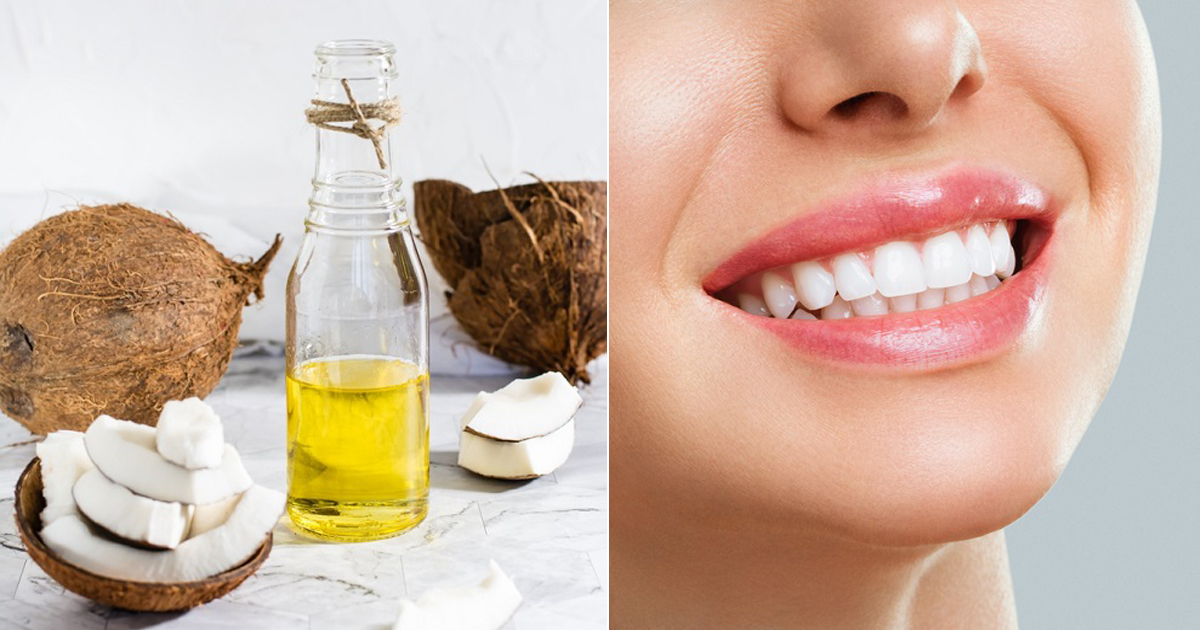Can Coconut Oil Whiten Teeth

The quest for a brighter, healthier smile has led many to explore alternative methods for teeth whitening, with coconut oil being one of the more intriguing options. This natural remedy, derived from the meat of mature coconuts, has been touted for its numerous health benefits, including its potential to whiten teeth. But, does coconut oil really live up to its promise, and if so, how does it work?
To understand the potential of coconut oil in teeth whitening, it’s essential to delve into its composition and properties. Coconut oil is rich in medium-chain triglycerides (MCTs), particularly lauric acid, which is known for its antimicrobial properties. This means that coconut oil may help combat bacteria in the mouth that can lead to yellowing or discoloration of the teeth. Furthermore, coconut oil contains fatty acids that can help reduce plaque and gingivitis, both of which are associated with oral health and the appearance of teeth.
The Science Behind Coconut Oil and Teeth Whitening
The idea that coconut oil can whiten teeth is largely based on the practice of oil pulling, an ancient Ayurvedic technique. Oil pulling involves swishing oil (in this case, coconut oil) around in the mouth for several minutes to remove bacteria, reduce inflammation, and freshen breath. Proponents of oil pulling claim that it can also help whiten teeth by removing surface stains.
There are a few mechanisms through which coconut oil might theoretically contribute to teeth whitening:
- Removal of Surface Stains: Coconut oil’s fatty acids could potentially help dissolve and remove surface stains on teeth, leading to a brighter appearance.
- Anti-bacterial Action: By reducing the amount of bacteria in the mouth, coconut oil may help prevent the formation of new stains and improve overall oral health.
- Gum Health: Healthy gums are crucial for the appearance of teeth. Coconut oil’s anti-inflammatory properties might help reduce gum inflammation, which can make teeth appear longer and healthier.
Practical Application: How to Use Coconut Oil for Teeth Whitening
While the scientific evidence supporting the use of coconut oil for teeth whitening is largely anecdotal, many people claim to have seen positive results. If you’re interested in trying coconut oil for teeth whitening, here’s a step-by-step guide:
- Choose High-Quality Coconut Oil: Look for organic, cold-pressed coconut oil that is free of additives and chemicals.
- Oil Pulling Technique: Take 1-2 tablespoons of coconut oil and swish it around in your mouth for 10-20 minutes. Make sure to reach all areas of your mouth, but avoid gargling or swallowing the oil.
- Spit and Rinse: After pulling, spit out the oil and rinse your mouth with warm water. Brush your teeth as you normally would.
- Consistency is Key: For noticeable results, consider incorporating oil pulling into your daily routine, ideally in the morning before brushing your teeth.
Expert Insights
While coconut oil may offer some benefits for oral health and potentially contribute to a brighter smile, it’s essential to have realistic expectations. “Coconut oil is not a substitute for regular dental care or professional teeth whitening treatments,” notes Dr. [Last Name], a dental health expert. “Its effects are more preventive and maintenance-oriented, helping to keep your teeth and gums healthy, which can indirectly contribute to a whiter, healthier appearance.”
Comparative Analysis: Coconut Oil vs. Traditional Whitening Methods
When comparing coconut oil to traditional teeth whitening methods, such as strips, trays, or professional dental whitening, it’s clear that coconut oil is more of a supplemental approach. Traditional methods often contain hydrogen peroxide or carbamide peroxide, which are proven bleaching agents. Coconut oil, on the other hand, relies on its natural properties to remove stains and improve oral health.
| Method | Mechanism | Efficiency | Cost |
|---|---|---|---|
| Coconut Oil | Natural stain removal, anti-bacterial | Variable, dependent on consistency and quality of oil | Low to Moderate |
| Whitening Strips | Hydrogen peroxide bleaching | High, quick results | Moderate to High |
| Professional Whitening | Customized hydrogen peroxide or laser treatment | Very High, immediate results | High |

Conclusion
In conclusion, while coconut oil may not be a magic bullet for achieving a Hollywood smile, it can be a useful addition to your oral health routine. Its potential to remove surface stains, combat bacteria, and promote gum health makes it a valuable tool in the quest for a brighter, healthier smile. However, for more significant whitening results, traditional methods or professional dental care may still be necessary.
As with any health or beauty regimen, consistency, patience, and realistic expectations are key. Incorporating coconut oil into your daily routine, alongside regular brushing, flossing, and dental check-ups, can contribute to a comprehensive approach to oral health and potentially lead to a whiter, more radiant smile over time.
Can coconut oil replace regular toothpaste for oral health and whitening?
+No, coconut oil should not replace regular toothpaste. While it has antimicrobial properties, it does not contain the necessary fluoride or abrasives to effectively clean and protect teeth from decay and plaque buildup. Use coconut oil as a supplement to your regular oral health routine.
How long does it take to see results from using coconut oil for teeth whitening?
+Results from using coconut oil for teeth whitening can vary greatly from person to person. Some may notice subtle improvements in oral health and tooth appearance within a few weeks, while for others, it may take longer. Consistency and patience are crucial, as well as maintaining good oral hygiene practices.
Are there any potential risks or side effects of using coconut oil for teeth whitening?
+Generally, coconut oil is considered safe for oral use. However, individuals with sensitive teeth or gums may experience discomfort. Additionally, oil pulling should not be used as a replacement for brushing or flossing, and improper technique could potentially lead to gagging or other issues. Always consult with a dental health professional if you have concerns.

